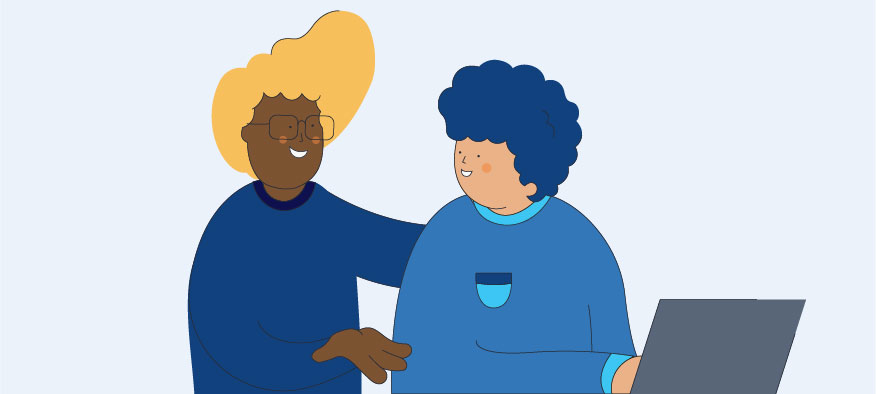The Tao te Ching is an enormously popular text, and guide to leadership. What I'm interested in getting some opinions about is why it's principles are so effective? What underlies the Taoist philosophy that makes it actually work in practice?
-
Features
-
Friends of IIDBFriends Recovering from Religion United Coalition of Reason Infidel Guy
Forums Council of Ex-Muslims Rational Skepticism
Social Networks Internet Infidels Facebook Page IIDB Facebook Group
IIDB Archives FRDB Archive Secular Café Archive
You are using an out of date browser. It may not display this or other websites correctly.
You should upgrade or use an alternative browser.
You should upgrade or use an alternative browser.
Why is Taoism so effective?
- Thread starter rousseau
- Start date
Shadowy Man
Contributor
Can you give an example of which Taoist principles you see working so well in practice?
The hope is for responses from those already versed in the text, but I'll give it a go.
Singling out a single section is difficult, but I think you could compare the overarching premise of the Tao te Ching with the concept of leading from behind.

 www.fingerprintforsuccess.com
www.fingerprintforsuccess.com
Basically, you do nothing until it's critical that someone or something gets re-directed, then you step in briefly and interject. My take is that this is what Taoism proposes
What I'm trying to find the words for is why does this work. What is it about people, and human organization, that makes this an effective approach?
Singling out a single section is difficult, but I think you could compare the overarching premise of the Tao te Ching with the concept of leading from behind.

Leading from behind: How and why it works
Everything you need to know about leading teams from behind to encourage problem-solving and innovation.
 www.fingerprintforsuccess.com
www.fingerprintforsuccess.com
People interested in leadership have probably heard or seen the phrase “leading from behind”. It’s the idea that leaders don’t guide a group of people, a team, a company, etc. from the front, in the traditional top-down management hierarchy. Instead, they lead from the rear, like a shepherd tending to a flock.
Basically, you do nothing until it's critical that someone or something gets re-directed, then you step in briefly and interject. My take is that this is what Taoism proposes
What I'm trying to find the words for is why does this work. What is it about people, and human organization, that makes this an effective approach?
From the horses mouth:
Taoism does not identify man's will as the root problem. Rather, it asserts that man must place his will in harmony with the natural universe.
Taoist philosophy recognizes that the Universe already works harmoniously according to its own ways; if a person exerts his will against or upon the world he would disrupt the harmony that already exists, he would go ‘against the flow of life’. (i.e. the harmonious change of seasons of summer, autumn, winter, spring - the tao- works well.
lpetrich
Contributor
My favorite Taoism story: Testimonials Carrier » Internet Infidels - "From Taoist to Infidel (2001)"
He was raised a liberal Methodist, but he ended up reading the Bible and finding it unsatisfying. In his teens he discovered a translation of the Taoist "Bible", the Tao Te Ching. He found that it seemed very plausible, and he came to believe in Taoism, though as a philosophical Taoist. But after some years, he kept on reading and learning, and he moved away from Taoism. After reading the Bible again, he became an atheist.
Dao De Jing [Tao Te Ching], by Lao Zi [Lao Tzu] in Side-by-Side Translation
Dao De Jing - Chinese Text Project
The original is in very terse Classical Chinese. Here are the first few lines of it:
道可道,非常道。名可名,非常名
dào kě dào, fēi cháng dào. míng kě míng, fēi cháng míng
go can go, not always go. name can name, not always name.
English translations are usually much more verbose:
The Dao that can be trodden is not the enduring and unchanging Dao.
The name that can be named is not the enduring and unchanging name.
The Reason that can be reasoned is not the eternal Reason.
The name that can be named is not the eternal Name.
The Dao that can be understood cannot be the primal, or cosmic, Dao,
just as an idea that can be expressed in words cannot be the infinite idea.
Dao vs. Tao -- Tao is in the Wade-Giles transcription, an old one, and Dao is in Pinyin, a more recent one.
He was raised a liberal Methodist, but he ended up reading the Bible and finding it unsatisfying. In his teens he discovered a translation of the Taoist "Bible", the Tao Te Ching. He found that it seemed very plausible, and he came to believe in Taoism, though as a philosophical Taoist. But after some years, he kept on reading and learning, and he moved away from Taoism. After reading the Bible again, he became an atheist.
Dao De Jing [Tao Te Ching], by Lao Zi [Lao Tzu] in Side-by-Side Translation
Dao De Jing - Chinese Text Project
The original is in very terse Classical Chinese. Here are the first few lines of it:
道可道,非常道。名可名,非常名
dào kě dào, fēi cháng dào. míng kě míng, fēi cháng míng
go can go, not always go. name can name, not always name.
English translations are usually much more verbose:
The Dao that can be trodden is not the enduring and unchanging Dao.
The name that can be named is not the enduring and unchanging name.
The Reason that can be reasoned is not the eternal Reason.
The name that can be named is not the eternal Name.
The Dao that can be understood cannot be the primal, or cosmic, Dao,
just as an idea that can be expressed in words cannot be the infinite idea.
Dao vs. Tao -- Tao is in the Wade-Giles transcription, an old one, and Dao is in Pinyin, a more recent one.
Emily Lake
Might be a replicant
- Joined
- Jul 7, 2014
- Messages
- 6,322
- Location
- It's a desert out there
- Gender
- Agenderist
- Basic Beliefs
- Atheist
Well, first off I'd like to point out that sometimes it doesn't work at all. Leading from behind is great when everything is essentially routine, or where disruptions to routine have small overall impacts. It doesn't work when there are strong difference of opinion between parties that must work together to solve a problem, or where immediate and direct decision is required to set a direction. There's a reason that the military doesn't take this approach, after all. Leading from behind is highly effective when the group is moderately small. It's great for a team of say 20 to 30 individuals, who all have clearly defined roles and responsibilities. It's much less effective when the group is large or when roles are fluid or ill-defined.The hope is for responses from those already versed in the text, but I'll give it a go.
Singling out a single section is difficult, but I think you could compare the overarching premise of the Tao te Ching with the concept of leading from behind.

Leading from behind: How and why it works
Everything you need to know about leading teams from behind to encourage problem-solving and innovation.www.fingerprintforsuccess.com
People interested in leadership have probably heard or seen the phrase “leading from behind”. It’s the idea that leaders don’t guide a group of people, a team, a company, etc. from the front, in the traditional top-down management hierarchy. Instead, they lead from the rear, like a shepherd tending to a flock.
Basically, you do nothing until it's critical that someone or something gets re-directed, then you step in briefly and interject. My take is that this is what Taoism proposes
What I'm trying to find the words for is why does this work. What is it about people, and human organization, that makes this an effective approach?
In some sense, I liken this leadership approach to communism (the philosophical kind, not the soviet union kind). It's conceptually great, but only on a small scale. It works very very well... in a small community. But it doesn't scale. Same thing with worker-owned businesses - they're awesome for small businesses, but they break down when you get above a certain number of people. If the people involved are very homogenous in thought and belief, it can work for a somewhat larger group, but at some point it just falls apart.
With respect to Taoism... to the extent that I accept any religion as reasonable, this is probably it. I'm not an expert, but I read it a long time ago, and much of the concepts resonated with me. To me, taoism seems like a common-sense approach to adaptability. Equilibrium, balance, non-contradiction, and fluidity were all concepts that I appreciate.
steve_bank
Diabetic retinopathy and poor eyesight. Typos ...
'Those that speak do not know, those who know do not speak'.
For a context to Chinese and Japanese philosophy.
Sun Tzu's; Art Of War is a good read.

 en.wikipedia.org
en.wikipedia.org
And Book Of 5 Rings by a ancient Japanese sword mast er Musashi.
For a context to Chinese and Japanese philosophy.
Sun Tzu's; Art Of War is a good read.

The Art of War - Wikipedia
And Book Of 5 Rings by a ancient Japanese sword mast er Musashi.
Well, first off I'd like to point out that sometimes it doesn't work at all. Leading from behind is great when everything is essentially routine, or where disruptions to routine have small overall impacts. It doesn't work when there are strong difference of opinion between parties that must work together to solve a problem, or where immediate and direct decision is required to set a direction. There's a reason that the military doesn't take this approach, after all. Leading from behind is highly effective when the group is moderately small. It's great for a team of say 20 to 30 individuals, who all have clearly defined roles and responsibilities. It's much less effective when the group is large or when roles are fluid or ill-defined.The hope is for responses from those already versed in the text, but I'll give it a go.
Singling out a single section is difficult, but I think you could compare the overarching premise of the Tao te Ching with the concept of leading from behind.

Leading from behind: How and why it works
Everything you need to know about leading teams from behind to encourage problem-solving and innovation.www.fingerprintforsuccess.com
People interested in leadership have probably heard or seen the phrase “leading from behind”. It’s the idea that leaders don’t guide a group of people, a team, a company, etc. from the front, in the traditional top-down management hierarchy. Instead, they lead from the rear, like a shepherd tending to a flock.
Basically, you do nothing until it's critical that someone or something gets re-directed, then you step in briefly and interject. My take is that this is what Taoism proposes
What I'm trying to find the words for is why does this work. What is it about people, and human organization, that makes this an effective approach?
In some sense, I liken this leadership approach to communism (the philosophical kind, not the soviet union kind). It's conceptually great, but only on a small scale. It works very very well... in a small community. But it doesn't scale. Same thing with worker-owned businesses - they're awesome for small businesses, but they break down when you get above a certain number of people. If the people involved are very homogenous in thought and belief, it can work for a somewhat larger group, but at some point it just falls apart.
With respect to Taoism... to the extent that I accept any religion as reasonable, this is probably it. I'm not an expert, but I read it a long time ago, and much of the concepts resonated with me. To me, taoism seems like a common-sense approach to adaptability. Equilibrium, balance, non-contradiction, and fluidity were all concepts that I appreciate.
Leading from behind implies a smaller scale, no? Leading a whole company from behind sounds like a logical fallacy to me. One can lead their immediate sphere of influence from behind, and that's about it.
I'd agree that there are times when a top down approach is more appropriate, and granting autonomy may be counter productive.
rjh01
Member
Could be a form of selective memory. When it works people say this is evidence it works. When it does not work, people keep quiet. If they try to say this is evidence Taoism does not work they are told they have not implemented it correctly or some other excuse.
Get the conditions right and anything can work, even if other methods would work better.
Get the conditions right and anything can work, even if other methods would work better.
From the horses mouth:
Taoism does not identify man's will as the root problem. Rather, it asserts that man must place his will in harmony with the natural universe.Taoist philosophy recognizes that the Universe already works harmoniously according to its own ways; if a person exerts his will against or upon the world he would disrupt the harmony that already exists, he would go ‘against the flow of life’. (i.e. the harmonious change of seasons of summer, autumn, winter, spring - the tao- works well.
If you translate this into modern speak I'd think you'd get something like:
People need to understand the underlying rules of the world around them, and live in accord with those rules.
One of the more important rules being that people usually can't be coerced against their will by speech. Taoism recognizes this approach as futile.
Jimmy Higgins
Contributor
- Joined
- Jan 31, 2001
- Messages
- 44,244
- Basic Beliefs
- Calvinistic Atheist
Taoism to me is like Libertarianism. It is a partial look at the universe. The good things about Taoism is how universal it is in application. The bad is how laissez faire it reads after a while. I really like the book in High School, because it helped provide a philosophical foundation to an atheist surround by Catholicism.
From the horses mouth:
Taoism does not identify man's will as the root problem. Rather, it asserts that man must place his will in harmony with the natural universe.Taoist philosophy recognizes that the Universe already works harmoniously according to its own ways; if a person exerts his will against or upon the world he would disrupt the harmony that already exists, he would go ‘against the flow of life’. (i.e. the harmonious change of seasons of summer, autumn, winter, spring - the tao- works well.
Personally, Taoism provides a few things in that it helps one reflect on what is and isn't important, an helps reflect how the environment applies itself to us. It also helps in the concept of action through inaction, but obviously steadfast inaction isn't a very good permanent strategy.
But as I read it more a decade plus later, it felt overly simplistic. Like Libertarianism, which works as a filter on a tool, but not as a tool itself. Taoism isn't wisdom, wisdom knowing when to apply Taoism.
Thomas II
Contributor
Thomas II
Contributor
Taoism to me is like Libertarianism. It is a partial look at the universe. The good things about Taoism is how universal it is in application. The bad is how laissez faire it reads after a while. I really like the book in High School, because it helped provide a philosophical foundation to an atheist surround by Catholicism.
From the horses mouth:
Taoism does not identify man's will as the root problem. Rather, it asserts that man must place his will in harmony with the natural universe.Taoist philosophy recognizes that the Universe already works harmoniously according to its own ways; if a person exerts his will against or upon the world he would disrupt the harmony that already exists, he would go ‘against the flow of life’. (i.e. the harmonious change of seasons of summer, autumn, winter, spring - the tao- works well.
Personally, Taoism provides a few things in that it helps one reflect on what is and isn't important, an helps reflect how the environment applies itself to us. It also helps in the concept of action through inaction, but obviously steadfast inaction isn't a very good permanent strategy.
But as I read it more a decade plus later, it felt overly simplistic. Like Libertarianism, which works as a filter on a tool, but not as a tool itself. Taoism isn't wisdom, wisdom knowing when to apply Taoism.
If you look at how it syncretized with Buddhism, some of this became a part of it, specifically the 'steadfast inaction' part. Zen recognizes that sometimes action is necessary. Zen really being a more modern form of Taoism.
My read of Taoism isn't so much that it's laissez-faire, but rather than it's realistic / practical. It points out that those who fight too hard against the way things are might be a bit foolish / deluded.

